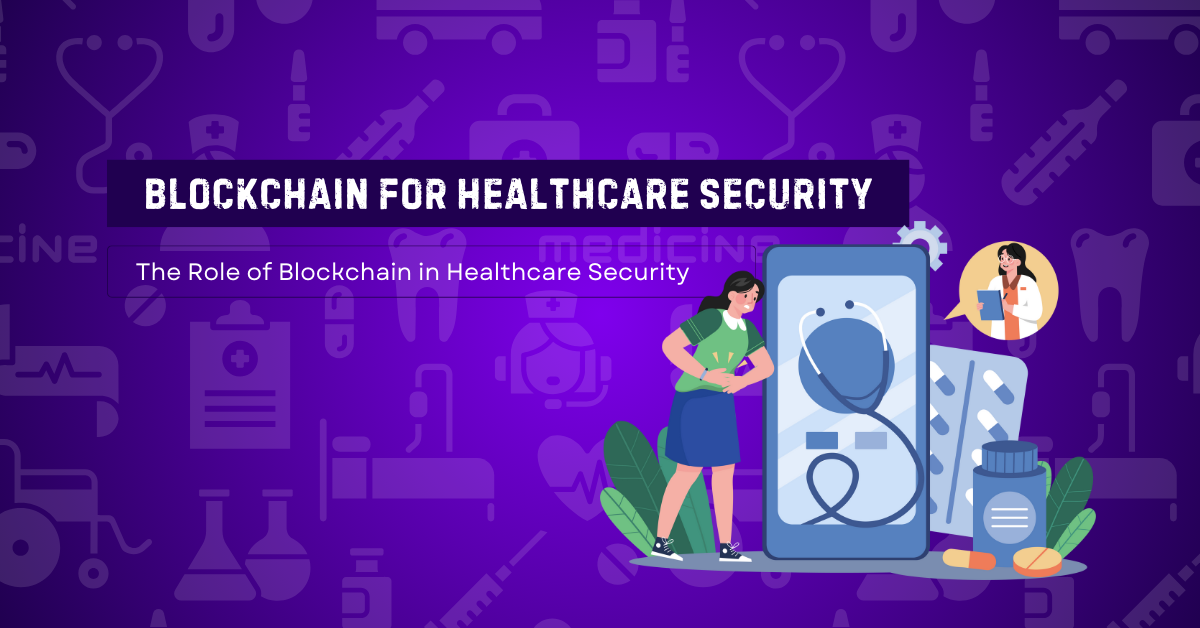With the rapid digitalization of the healthcare industry, ensuring data security has become a critical challenge. Patient records contain highly sensitive information, making them prime targets for cyberattacks and data breaches. Traditional data storage methods are vulnerable, inefficient, and often non-compliant with evolving regulations such as HIPAA (Health Insurance Portability and Accountability Act) and GDPR (General Data Protection Regulation).
Blockchain technology presents a revolutionary approach to securing healthcare data. It offers decentralized, immutable, and transparent solutions for patient record management, insurance claims automation, and regulatory compliance. This blog explores how blockchain is transforming healthcare security and protecting sensitive medical information.
The Role of Blockchain in Healthcare Security
1. Secure Patient Data Storage & Sharing
Blockchain technology ensures secure and decentralized patient data storage by distributing records across a tamper-resistant ledger. Here’s how it enhances security:
- Decentralization: Unlike centralized databases that are prone to breaches, blockchain removes a single point of failure, making it significantly harder for hackers to compromise patient records.
- Encryption & Access Control: Patient data stored on the blockchain is encrypted and can only be accessed through cryptographic keys, ensuring that only authorized personnel can view or modify records.
- HIPAA/GDPR Compliance: Blockchain’s transparent and immutable nature helps healthcare institutions adhere to strict data protection regulations by providing audit trails and verifiable logs of data access.
2. Smart Contracts for Insurance Claims Automation
The insurance claims process is often slow, error-prone, and susceptible to fraud. Smart contracts—self-executing agreements on a blockchain—streamline this process by automating claim verification and settlement. Benefits include:
- Reduced Processing Time: Claims are automatically validated based on predefined criteria, eliminating manual processing delays.
- Fraud Prevention: Smart contracts ensure that only legitimate claims are processed, reducing fraudulent activities and financial losses.
- Transparency: Every transaction is recorded on the blockchain, providing a verifiable history of claims and payments, which builds trust among stakeholders.
3. NFT-Based Medical Records for Tamper-Proof Data Management
Non-Fungible Tokens (NFTs) are emerging as a groundbreaking solution for patient record management. By converting medical records into NFTs, healthcare providers can offer:
- Immutable Medical History: NFT-based records cannot be altered or tampered with, ensuring the integrity of a patient’s medical history.
- Interoperability: Patients can easily share their NFT medical records with doctors, hospitals, and insurers, reducing administrative bottlenecks.
- Patient Ownership & Control: Unlike traditional healthcare systems, NFT-based records allow patients to control who can access their medical data.
Conclusion
Blockchain technology is reshaping healthcare security by offering a decentralized, transparent, and tamper-proof way to manage sensitive patient data. From secure storage to automated insurance claims and NFT-based medical records, blockchain enhances data protection, ensures compliance, and improves overall efficiency in the healthcare industry.
As blockchain adoption grows, healthcare institutions must explore its potential to strengthen security measures and safeguard patient information against cyber threats. By integrating blockchain solutions, the healthcare sector can ensure a future where data integrity and patient privacy are paramount.
Are You Ready to Secure Healthcare with Blockchain?
If you’re a healthcare provider, insurer, or tech entrepreneur looking to implement blockchain for healthcare security, now is the time to act. Reach out to explore how blockchain can transform your healthcare operations securely and efficiently!
Want to build a security system for your business ? Let’s talk 🚀





